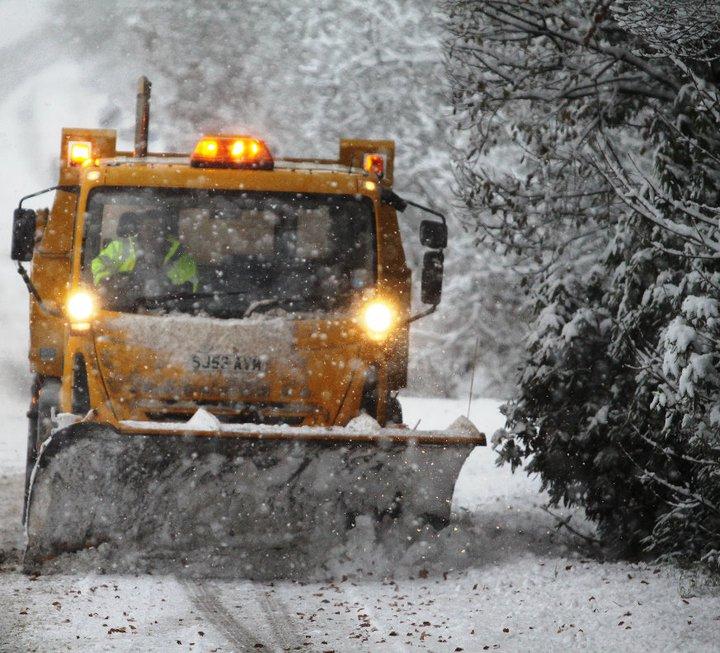Priorities and plans are already set out to keep Argyll and Bute open for business over the coming winter and these were approved by the council’s Environment, Development and Infrastructure committee on 12 September.
When temperatures are forecast to plummet, the council is geared up to treat 32 routes, amounting to 54% of our road network. This percentage is above the average of all other local authorities.
To achieve this the council has 32 frontline vehicles, plus another 10 back-up vehicles that can be brought into use if conditions demand. Additional trailer gritters, to be used with pick-up vehicles, will be procured for the islands of Tiree, Coll, Colonsay and Lismore.
As always, footways and paths are not normally treated. However, there are a number of local grit bins which can be used by members of the public.
Keeping Argyll and Bute’s roads clear takes careful planning. The council has a dedicated team who analyse local weather forecast data so we know by the end of each day what we need to do to make sure we treat the roads appropriately the following morning.
Councillor John Armour, Policy Lead for Roads, Transport and Amenity Services, said: “I’d like to thank our roads workers who, year in and year out, come to work on the icy roads, in the dark, to make sure the rest of us can get to our daily commitments as safely as possible.
“We grit as many roads as possible, but the main routes always take priority. Remember the salt does not actually melt the ice on the road; it mixes with the moisture on the ground to create a saline that has a lower freezing temperature than water. This only starts to work as the salt breaks down due to traffic going over it to break it up. This means that, even although we may have treated the roads, the surface can still be very icy until this process has time to work, and we would urge people to continue to drive with caution and be safe.”
There are many resources on our website that can help you plan before you leave home. These include live-event road cameras, our daily action plan, which includes our gritting schedule, and our adverse weather plans. Please make the most of these to help plan a safe journey.
In very bad weather, think about whether you absolutely have to make that journey. ROSPA has a useful factsheet on being prepared for winter driving.
Details on the council’s adverse weather plans.
From 1 November, until next April, you can find our daily road treatment plans on the website.
View our road cameras.

